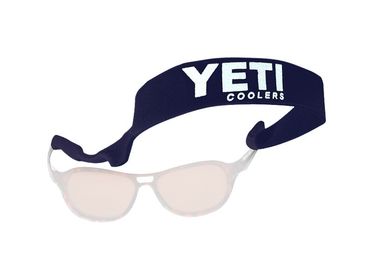 Why will people spend nearly $300 (up to thousands depending upon the model) on a YETI cooler but then complain when their eyeglasses cost the same price? I would answer two reasons: Marketing and Convenience. Jon Scott, a leading Optometrist from Greensboro, NC, described the problem this way: Tip of the hat to the marketing department at YETI. Didn't think I'd ever see people spending hundreds on a drink cooler plus a hat, window decal, and t-shirt to advertise that fact. Brilliant and I'm jealous. Jealous mainly because people complain about spending similar amounts for eye glasses. Glasses used for sight. Vision. Our most precious of senses. In fact, these same folks will brag about getting their glasses from China for $40. Glasses the quality of disposable 3-D movie glasses. Glasses the price one would expect to spend on a drink cooler. Well played YETI. Well played. Yes, YETI has an incredible product, but people don’t always care about incredible products. This is obviously the case if people are willing to wear flimsy sweat-shop frames instead of quality eyewear backed with a doctor’s guarantee. To make a difference in this economy and reclaim their lost market share, the local eye doctor must adapt and tackle the issues of marketing and convenience head-on. Marketing: According to Adage, YETI grew by going after niche markets like the hunting and fishing communities and even the Barbeque crowd. They emphasized performance and reliability. This is the pathway for the local eye doctor to succeed against the online eyeglass world. Touting cheap frames in your office only pushes patients to an online retailer. The patient thinks, “Well, if I’m going to get cheap frames, I might as well get them without having to go into the doctor’s office.” The pathway to success and practice growth is distinguishing yourself from the online competition, not likening yourself to them. If YETI was like the disposable cooler that you can find at the gas station, no one would pay $300 for their product. Convenience: Convenience is not just how quick you can get something. Convenience is also durability. YETI describes their product, "as a thing that was meant to last, meant to be used, and was built as tough as it possibly could be. The price didn't really matter." The local eye doctor must be absolutely sold, in person and online, that they create convenience because they sell a product that will endure. People will pay money for something that lasts. For YETI, there are plenty of people who buy Styrofoam coolers at the gas station, but those are not necessarily their market. They want to appeal to folks who want something that will endure, something that will be used for years. The eye care professional must make that appeal as well, even use that analogy. You don’t want to buy a pair of frames every six months because they break. You don’t want to ship and receive glasses over and over again. Buy a pair of frames that will endure, and in the slight case of a problem, the doctor stands ready to care for their patients. YETI shows that people will spend money on quality, and they have marketed that message well. The local eye doctor has to do the same. Let the online world be the Styrofoam cooler of eyewear. You have a different product to sell. Gordon Duncan is the CEO/Consultant of ProSight Success. He has worked in and cared for the eye care industry for nearly 20 years. His Prosight System contains helpful strategies like the one above, and His in-person and online consultations are intended to enable you and your practice to succeed in this competitive age.
0 Comments
Leave a Reply. |
Gordon DuncanGordon Duncan is an award-winning educator, salesman, teacher, manager, and writer. He has taught in the public school system, lobbied for school's accreditation, managed eye clinics, led sales' teams, and also publishes books on theology, church, and culture. Archives
September 2021
Categories |
 RSS Feed
RSS Feed
